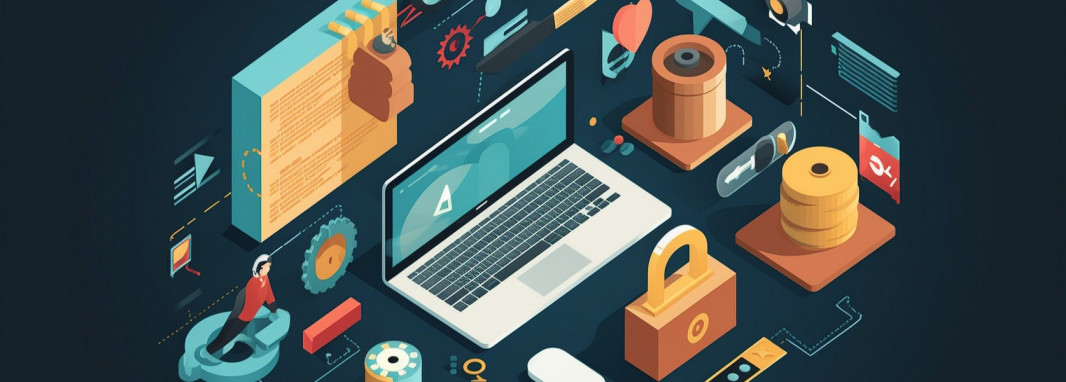Ah, do we remember the time of the ‘old days’ of the internet? Back when signing up for a new website meant handing over your entire life story (and maybe even your pet’s favorite food) without a second thought?
And yes, those days are fading fast.
As the digital age has flourished, so too have concerns about how our personal information is collected, used, and, unfortunately - misused.
This has led to a new wave of privacy regulations, such as the California Consumer Privacy Act (CCPA), that are putting businesses on notice.
But these regulations aren’t just about social media giants - they’re impacting the future of web development in a big way.
We should get into it right away, and explore how these laws are reshaping the way websites are built, especially when it comes to technologies like Artificial Intelligence (AI), Machine Learning (ML), and Blockchain.
So shall we start our fascinating - and sometimes challenging road?
Let’s go!
CCPA: Your data, your choice
So, we just mentioned the CCPA, but what exactly is it? Think of it as a law with teeth, specifically designed to give Californians more control over their personal information.
In a nutshell, the CCPA is all about empowering you to be the boss of your data.
Here’s the breakdown: You just saw a new cool website and you decided to sign up.
Under the CCPA, you have the Right to Know exactly what information they’re collecting about you, how they’re using it, and, wait for it, if they’re selling it to third parties. Kind of like checking the receipt after a grocery haul, but for your online life.
But it gets even better. If you’re not a fan of something they’ve collected, you have the Right to Delete it. And poof, gone from their digital clutches. Feeling like your data’s become a hot commodity?
The CCPa grants you the Right to Opt-Out of Sale. Basically, you get to tell them, “Nope, thanks,” if they try to turn your information into a revenue stream.
Now, exercising these rights shouldn't come with a punishment.
The CCPA guarantees you the Right to Non-discrimination, meaning companies can’t treat you differently (think slower loading times or limited features) just for wanting more control over your data.
Here’s the catch: the CCPa applies to businesses that collect data on California residents, regardless of the company’s location.
So, even if you’re halfway across the globe but use a website that targets Californians, this law might apply.
And for businesses that don't play by the CCPA requirements? There can be some serious consequences.
In the event that the law is not followed, the office of the California Attorney General has the authority to enforce it, which may result in significant financial penalties.
The CCPa is a game-changer because it provides residents of California with unprecedented control over their data. The question is, how does all of this relate to web development?
CCPA Compliance: From sneak-attack pop-ups to user-friendly controls
Remember those annoying pop-ups that snuck into your screen, demanding you agree to a privacy policy you never read? Thanks to the CCPa, those days are over.
Websites now need your explicit consent before collecting your data, and that means clear and upfront communication is the wisest choice.
Imagine a possibility where privacy notices are written in concise, easy-to-understand language.
Name, email address, browsing history, how they are being used (e.g., to personalize your experience for targeted advertising), and whether they are being sold or disclosed to third parties should be clearly stated in these notices.
But that’s not all. The CCPA packs a punch. It mandates strong data security practices to ensure your personal information is safe.
Think of it like a high-tech-digital vault, keeping your data under lock and key until you decide it’s time to say goodbye.
In essence, the CCPA is forcing web developers to rewrite the rulebook on data collection, storage, and ultimately user privacy.
User experience: Empowering users with clear controls
Not only does the CCPA ensure the security of your data in the background, but it also allows you to manage the information that websites gather and how it is applied. For web developers, this means a plethora of new factors to think about when designing UIs and UXs. Say you've just subscribed to a new music streaming service. If you wish to remove your data from the platform, you should be able to locate an obvious "Do Not Sell My Info" button or a simple form to do it in accordance with the CCPA. The days of complex privacy settings and confusing menus are over. Interfaces that are simple to use greatly improve the ability for users to exercise their CCPA rights.
However, it's more complicated than setting up a button and that's it. Beyond its practicality, a well-designed UX adds value. Just imagine how annoying and time-consuming it would be to navigate a news website in search of the privacy settings. Building trust with users requires an easy-to-use interface that makes exercising your CCPA rights feel natural.
Web developers are now expected to create user-friendly and CCPA-compliant interfaces; in this sense, they are UX superheroes.
Data management: Champion of CCPA compliance
We have now covered the subject of how CCPA affects the visual aspects of a website. To make sure everyone follows the rules, though, another universe is at work in the background.
In this context, data governance and management become crucial. A website's database is similar to a huge library in that it contains a wealth of information.
Librarians employ data management procedures to ensure all information is well -organized and protected.
These procedures must be strong enough to guarantee compliance with the law in data collection, storage, and consumption under CCPA.
These data governance methods should now be built into web applications by web developers. Verifying that websites do not violate the CCPA is an important but unglamorous aspect of the job.
Web developers may expect to see a lot of changes as a result of the CCPA. But hey, it's a much-needed overhaul that prioritizes consumer privacy.
To create a future where innovation and user trust coexist, web developers must prioritize clear communication, user-friendly interfaces, and reliable data management standards.
How is technology becoming your privacy hero?
Even if the CCPA is causing a stir, web developers have a plethora of new technological resources at their disposal to help them deal with the changing privacy regulations.
Now, we have Privacy-Enhancing Technologies (PETs), a term for tech solutions designed to protect your privacy while websites still get the data they need to function. Think of them as privacy power ups for the web.
Here’s a peek into some of the PETs that are changing web development. One tool is called differential privacy, which adds a little statistical magic to data analysis.
Let’s say a website wants to analyze user patterns without disclosing personal information.
With differential privacy, you can obtain insightful information without jeopardizing the privacy of others by introducing noise into the data, much like a scattering of confetti.
Another powerful PET is homomorphic encryption. Imagine a locked box that lets you analyze what’s inside without ever actually opening it. That’s kind of how homomorphic encryption works.
Data gets encrypted, but calculations can still be performed on it while it remains secure. This allows websites to glean useful information from your data without ever needing to decrypt it, keeping your privacy watertight.
PETs have more to offer than just catchy names. AI and ML are also getting a privacy makeover.
These technologies can be used to analyze data in a privacy-preserving way, allowing websites to extract valuable insights without needing to access all your personal information directly.
Just imagine a news website using AI to suggest articles that may interest you, while maintaining your privacy by not accessing your complete browsing history.
Also, we shouldn’t overlook Blokchain. This technology has the potential to greatly impact data security and user control.
Think of it like a highly secure digital ledger where you have complete control over your data. Blockchain enables you to control access to your information and specify its purpose.
With this feature, you have complete control over how your data is used in web applications.
The future of web development
The CCPa might be the first wave in a sea change for web development. New privacy laws are forcing websites to completely rethink how they collect, store, and use user data.
But hey, this doesn’t mean anything bad!
It’s pushing the industry to prioritize user privacy, transparency, and security.
With PETs like homomorphic encryption and differential privacy becoming the norm, fascinating possibilities await in the future.
A privacy overhaul is underway in AI and ML, while Blockchain gives people a greater say over their personal information.
Even though rules and regulations are always changing, web developers are working hard to provide a new kind of user experience that values privacy.
Therefore, fasten your belts and buckle up because you are about to enter a web where incredible experiences and dependable data security go hand in hand.





